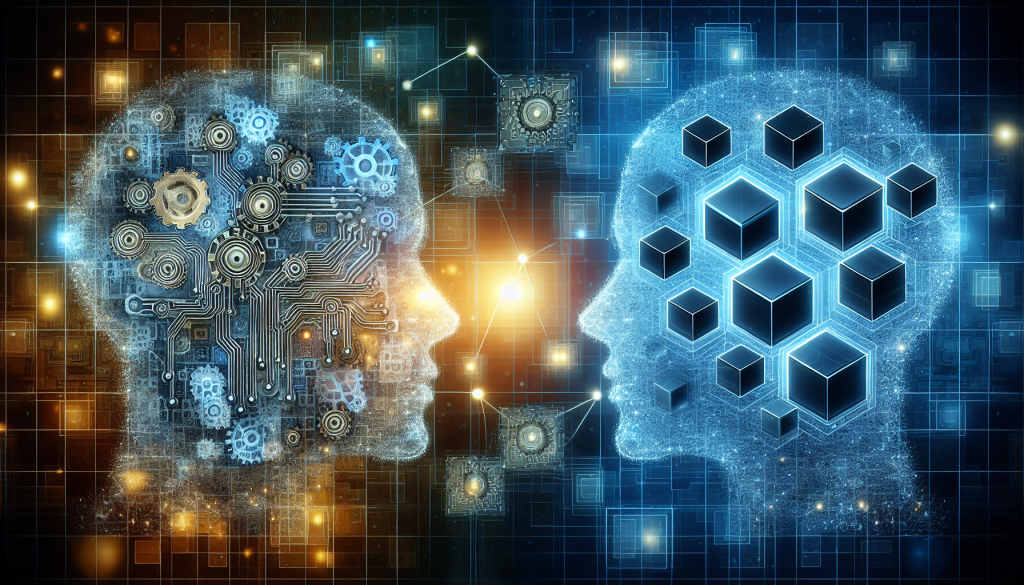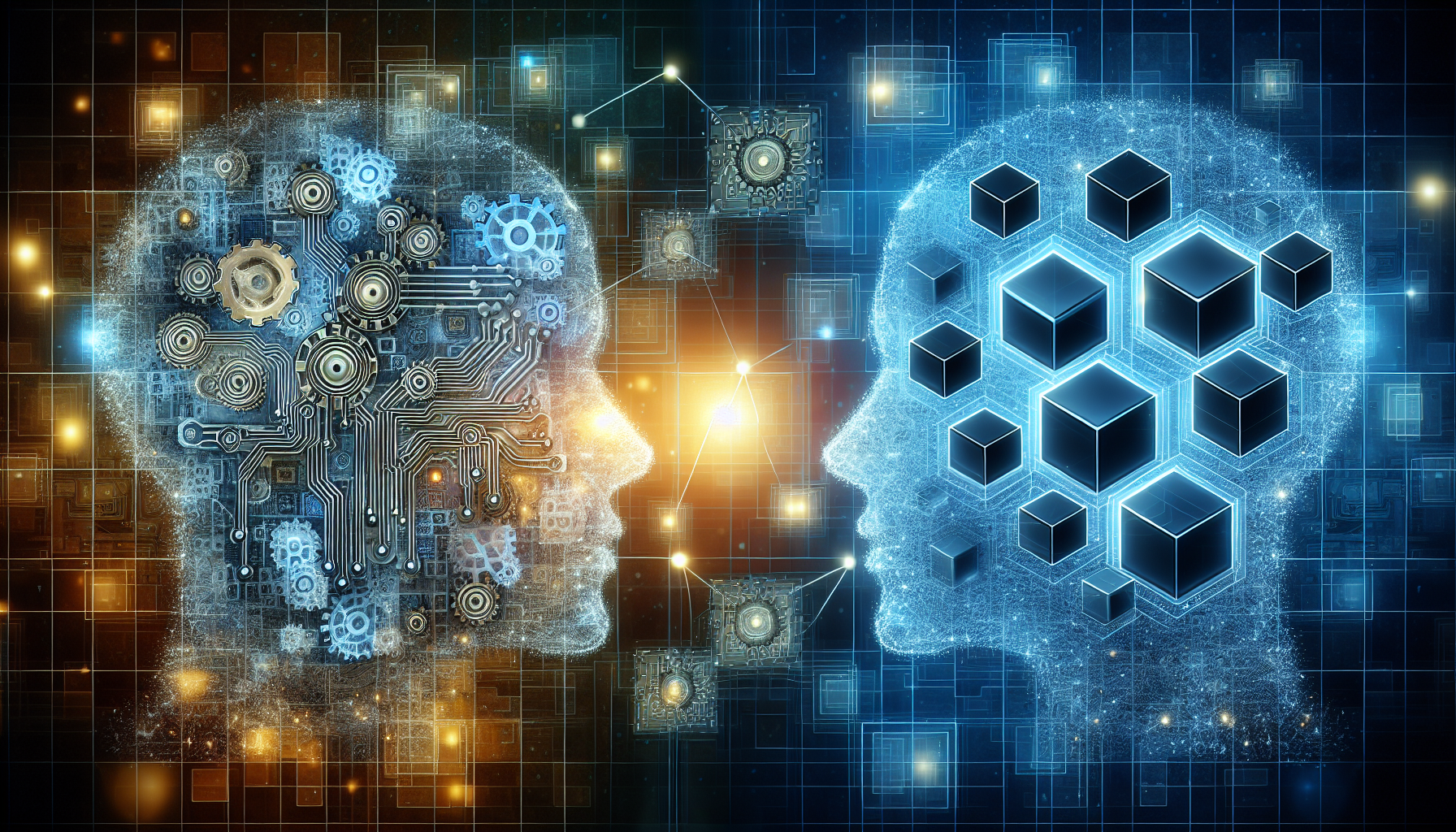/ Mar 02, 2026
Trending


The rapid evolution of technology has brought forth numerous innovations with two of the most transformative being Artificial Intelligence (AI) and Blockchain technology. While these two domains often appear to be at odds, they could potentially complement each other, revolutionizing industries and elevating technological capabilities to new heights.
Artificial Intelligence is the simulation of human intelligence processes by machines, particularly computer systems. These processes include learning, reasoning, problem-solving, perception, and language understanding. AI has been integral in enhancing efficiency and capability across various sectors including healthcare, finance, and manufacturing.
Blockchain, on the other hand, is a decentralized digital ledger that records transactions across many computers in such a way that the registered transactions cannot be altered retroactively. It is the backbone of cryptocurrencies and has increasingly found applications in supply chain management, digital identity verification, and beyond.
As technological advancements continue, some see AI and Blockchain as competitors. AI’s strength lies in processing and learning from vast amounts of data, autonomously improving its operation through exposure to new patterns. Conversely, Blockchain’s power resides in its capacity to securely and transparently store data, ensuring traceability and immutability.
The potential dichotomy stems from AI being centralized, relying on massive datasets controlled by a few tech companies, while Blockchain is inherently decentralized, promoting transparency and distributed control.
Despite perceived competition, the integration of AI and Blockchain presents a myriad of opportunities. Combining AI’s data processing capabilities with Blockchain’s security could lead to groundbreaking applications. For instance:
– **Enhanced Data Security**: AI systems can analyze and respond to potential security threats in a Blockchain, thereby enhancing data security measures.
– **Improved Efficiency**: Blockchain can provide a trustworthy infrastructure for AI by ensuring that the data AI systems learn from is accurate and tamper-proof, optimizing decision-making processes.
– **Transparent Decision-making**: In AI systems that require transparency, Blockchain can record the AI decision-making process, providing auditable trails that enhance trust in AI outputs.
In financial services, AI can analyze transactional data recorded on a Blockchain to predict market trends, detect fraudulent activities, and enable personalized financial advice. This could enhance the efficiency of financial markets and reduce susceptibility to manipulation.
AI-powered analytics could process vast amounts of patient data stored on a Blockchain to discover new treatment methods or enhance diagnostic accuracy. Additionally, Blockchain could ensure patient data privacy and consent management, striking an essential balance between data utility and privacy.
The convergence of AI and Blockchain technologies is increasingly attracting attention from startups and established enterprises alike. Investments in platforms that offer integrated solutions are on the rise, reflecting a growing belief in the potential synergies between these technologies. Examples include projects like SingularityNET, which aims to create a decentralized marketplace for AI services, leveraging Blockchain technology.
The regulatory landscape remains a critical challenge. Both AI and Blockchain are subject to different regulatory concerns. AI’s ethical implications, such as bias and decision-making transparency, require scrutinous oversight, whereas Blockchain’s decentralized nature raises questions about jurisdiction and accountability.
Developing a comprehensive regulatory framework is crucial to ensure balanced innovation and protection. Regulators must strike a balance that encourages technological advancements while safeguarding public and corporate interests.
AI and Blockchain, while distinct in their approach and functionality, are not inherently at odds. By recognizing their complementary strengths, industries can harness their combined potential to foster innovation, drive efficiency, and enhance security and transparency across sectors. As the technological landscape evolves, embracing collaboration rather than competition may unlock unprecedented opportunities.
The conversation around AI and Blockchain will likely shift from a narrative of rivalry to one of partnership as further integrations prove successful. Both technologies will shape our future, but their full potential is best realized when they work in tandem, creating a more efficient, secure, and transparent digital era. As these technologies deepen their roots, being part of this transformation requires remaining open to collaborative frameworks that highlight their strengths in unison.
Stay ahead with Blockchainooz! Get daily updates on industry insights, market trends, and innovative blockchain technology—all in one place. Perfect for enthusiasts and investors looking to make informed decisions in the ever-evolving world of blockchain and crypto.